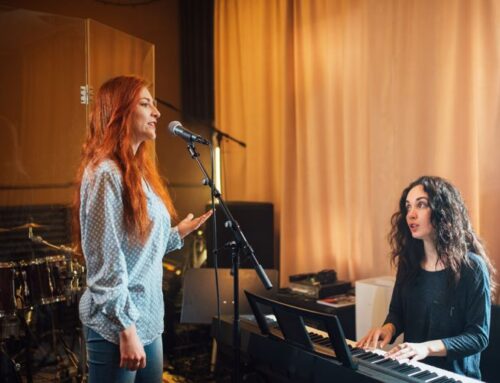Every child loves to sing, right? Parents often wonder, then, if signing up for singing lessons is a great idea. If you’re thinking you may have a future Céline Dion or Michael Bublé on your hands, vocal lessons could be a great idea to refine your child’s innate talents. But, there are a few things you need to consider first.
Does your child want to learn to sing?
Many parents like the idea of learning to sing better than their child does. The lesson to be learned here is to make sure you don’t sign your child up for vocal lessons unless they actually have an interest in it. After all, if they have no desire to learn, it’ll be a constant battle to get them to practice and this may turn them off music altogether. Not to mention the fact that you don’t want to cause unnecessary friction in your relationship with them.
Consider the age of your child
There’s isn’t a single right answer to the question of what age a child should be to start vocal lessons. This is because it depends on their motivation, temperament, and personality.
Many children benefit from waiting to take formal vocal lessons until they’ve started going through puberty and are noticing changes in their voice. At this time, a boy’s voice will start to deepen, and a girl’s voice will begin to sound less child-like. And with age comes more maturity and patience – this makes it easier to get them to see the benefits of practice and paying attention during lessons.
If you have a younger child who wants to sing, you ought to consider the benefits to first teaching them how to play a musical instrument. Learning how to play an instrument will give them a great foundation for reading and understanding music that will be an enormous benefit later when they move on to voice lessons.
Other options for your budding singer is for them to join a choir run by their school or a local community group.
All that being said, if your young child has their heart set on vocal lessons and has the attention span needed to make the most of them, go for it. But do be aware that the due to the immaturity of their vocal chords, different techniques will need to be used compared to what’s done with older singers. Also, the younger the child, the more the emphasis needs to be on developing a love of music as opposed to focusing on perfect, award-winning technique. The goal is to develop their passion for music, which will serve them well in their later years when more intense practice and study will be required to bring out the best of their talent.
Consider the type of music your child wants to sing
Another important factor in determining whether or not vocal lessons are right for your child is the type of music being taught. Some children dream of belting out opera, others want to sound like the latest pop star. So be sure to choose an instructor and school that can teach your child to sing what they love. Some parents make the mistake of pressuring their young students to study a genre of music that they dislike, and that can destroy their affection for singing – don’t be that parent!
Consider the vocal instructor’s style and preferences
Some singing instructors prefer to work with singers learning for fun, others have a passion for teaching individuals that want to wholeheartedly devote themselves to the craft and go pro. Find an instructor that suits your child’s goals so they can bring out the best in them and avoid frustration.
You child’s characteristics will tell you if they’re ready to sing!
After giving careful thought to their age, maturity, preferences, and availability of lessons that might suit them, it’ll become more clear whether or not your child is ready for vocal instruction. And if in doubt, talk to staff at the music school that you’re considering – with their experience they’ll be a big help in aiding you to assess your
Are you in the Burlington Ontario area and you or your child would like to start singing and register for music lessons? Don’t until you visit Capstone Music and check out our fantastic music centre staffed by award winning music instructors!






